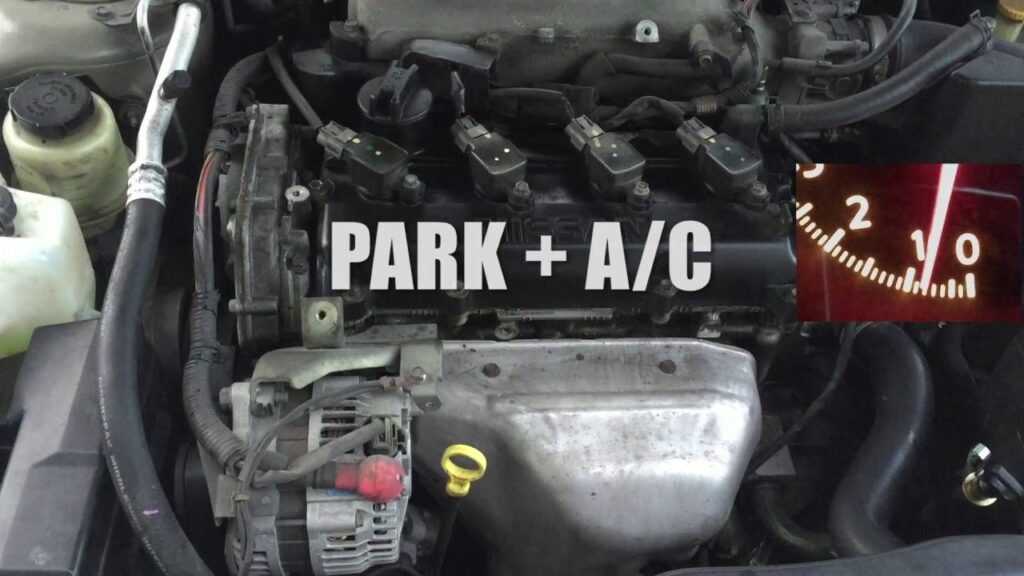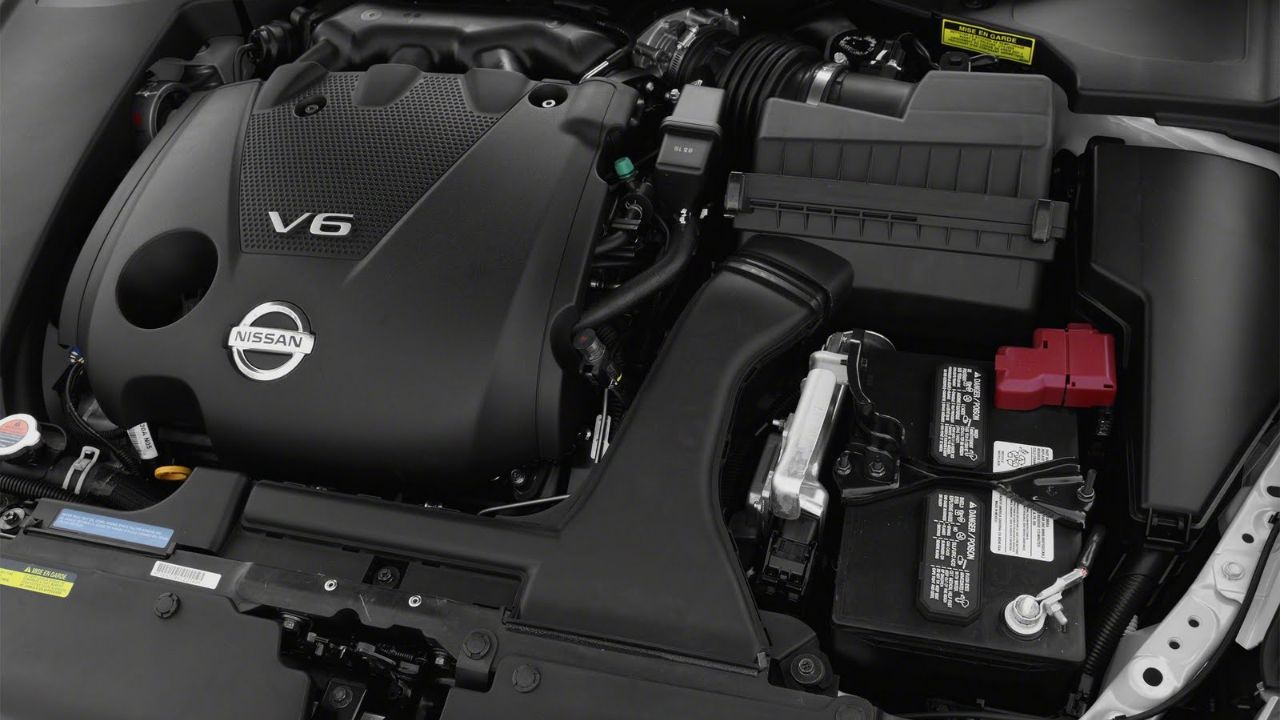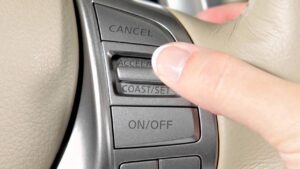The Nissan Altima is a popular sedan known for its reliability and performance. However, like any other vehicle, it may experience issues over time, such as a loud engine noise. Maintaining your car’s health and ensuring a pleasant driving experience depends on knowing what’s causing this noise and how to fix it.
The Nissan Altima
Before diving into the specifics of engine noise, it’s essential to have a basic understanding of the Nissan Altima. This sedan has various components that work together to deliver power and efficiency on the road. But with time, these parts may deteriorate and cause problems like engine noise.
Common Causes of Loud Engine Noise
Loud engine noise can be alarming for car owners, signalling potential issues that require attention. Several common causes contribute to this disruptive sound. Worn-out components such as belts, pulleys, and bearings can increase friction and produce noise. Malfunctions or leaks in the exhaust system can also result in abnormal engine sounds.
Additionally, faulty engine mounts may fail to dampen vibrations, transmitting excess noise into the cabin. Engine misfires and low oil levels are other potential culprits. To solve these problems and guarantee a smoother, more efficient operation, regular maintenance and timely repairs are crucial to a quieter driving experience.
Lack of Maintenance
To maintain any vehicle in optimal condition, regular maintenance is essential. Refraining from performing routine tasks such as oil changes, filter replacements, and belt inspections can increase engine noise in the Nissan Altima.
Worn Out Components
As the Altima ages, certain components within the engine may wear out or become damaged. This includes the timing belt, bearings, and pistons, which can produce loud noises when malfunctioning.
Engine Overheating
Overheating is a serious issue that can cause various problems, including loud engine noise. When the engine reaches high temperatures, it stresses components more, leading to unusual sounds and potential damage.
Low Oil Level
The oil level must be maintained for the engine to be properly lubricated and for the friction between moving parts to be reduced. A low oil level can increase friction, leading to loud noises as components rub against each other.
Identifying the Source of the Noise
Determining the source of the loud engine noise in your Nissan Altima is the first step in addressing the issue. Determine whether the noise comes from the engine’s sides, rear, or front by paying close attention to where it comes from.
DIY Solutions to Reduce Engine Noise
Are you tired of the constant engine noise in your vehicle? Fear not, as there are DIY solutions to help you quiet down that racket. Start by inspecting and tightening loose bolts or components in your engine bay. Consider adding sound-deadening material to the interior panels of your vehicle to absorb excess noise.
Additionally, replacing worn-out engine mounts can significantly reduce vibrations and noise transmission. Finally, regular maintenance such as oil changes and belt inspections can ensure smooth engine operation, minimizing noise. These simple DIY solutions allow you to enjoy a quieter and more peaceful driving experience.
Regular Maintenance Checks
Schedule regular maintenance checks to ensure all components are in good condition and functioning properly. This includes inspecting the oil level, checking for leaks, and replacing worn-out parts.
Engine Oil Change
Changing the engine oil regularly is essential for optimal engine performance. Use high-quality oil that meets the manufacturer’s specifications to reduce friction and minimize engine noise.
Checking the Cooling System
Ensure the cooling system works efficiently to prevent overheating and subsequent engine noise. Check the coolant level, radiator, and hoses for any signs of leaks or damage.
Inspecting the Exhaust System
A faulty exhaust system can also contribute to loud engine noise in the Nissan Altima. Inspect the exhaust manifold, catalytic converter, and muffler for leaks, cracks, or loose components.
When to Seek Professional Help
While some problems can be fixed independently, others might need a professional mechanic’s knowledge and skills. If you cannot identify the source of the engine noise or if it persists despite your efforts, it’s best to seek professional help to avoid further damage to your vehicle.
Nissan Altima Loud Engine Noise the Problem

Common Complaints
Owners of Nissan Altima vehicles have voiced their concerns about the loud engine noise, often describing it as a persistent and disruptive sound. This noise can vary in intensity and may occur during acceleration, deceleration, or idling. While some drivers may attribute it to normal engine operation, others find it alarming and indicative of a more significant issue.
Potential Causes
Several factors could contribute to the loud engine noise experienced by Nissan Altima owners. These include:
- Worn Out Components: Over time, various engine components such as belts, pulleys, and bearings can wear out, leading to increased friction and noise.
- Exhaust System Issues: Malfunctions or leaks in the exhaust system can result in abnormal engine sounds.
- Faulty Engine Mounts: Weak or damaged engine mounts may fail to dampen vibrations, causing excess noise to transmit into the cabin.
- Engine Misfire: A misfiring engine can produce loud popping or banging noises, indicating ignition or fuel delivery problems.
- Low Oil Level: Insufficient lubrication due to low oil levels can result in excessive friction and noisy engine operation.
Conclusion
Loud engine noise in a Nissan Altima can be concerning, but it’s not always indicative of a serious problem. By understanding the common causes of engine noise and taking proactive measures to address them, you can keep your Altima running smoothly for years.
FAQ
Why Does My Nissan Soundcloud?
Best Answer. It’s likely an exhaust leak. Any rust-through section on the exhaust side (pipes, muffler, cat converter, manifold) will cause an audible change in the engine noise.
Is the Nissan Altima a Quiet Car?
It is a responsively handling sedan that is incredibly quiet and comfy. Among the easiest to operate in the class are the controls and infotainment. The Altima comes standard with most available safety features; even the most basic model and all-wheel drive are available as options.
Why is My Car Making a Loud Sound When the Engine is On?
The first thing you should look for is a muffler problem. A worn-out or damaged muffler will make your car run louder (although the sound won’t be coming specifically from the engine). Besides the noise volume, other potential side effects of muffler trouble could be poorer gas mileage and increased fumes.
How do I Reduce Engine Noise?
The best technique to reduce engine noise in your vehicle is to use soundproofing materials. Sound-deadening material with the correct tools and supplies is easy to install in a few hours. You can also attempt a few additional techniques to cope with the noise.
Is Engine Noise Normal?
All cars make noises at some point, from clicks and ticks to knocks and pings. You’ll quickly learn the intricacies of your vehicle, but now and then, a noise will catch your attention. Take your car to the mechanic when you notice anything unusual to address the problem before it worsens.



